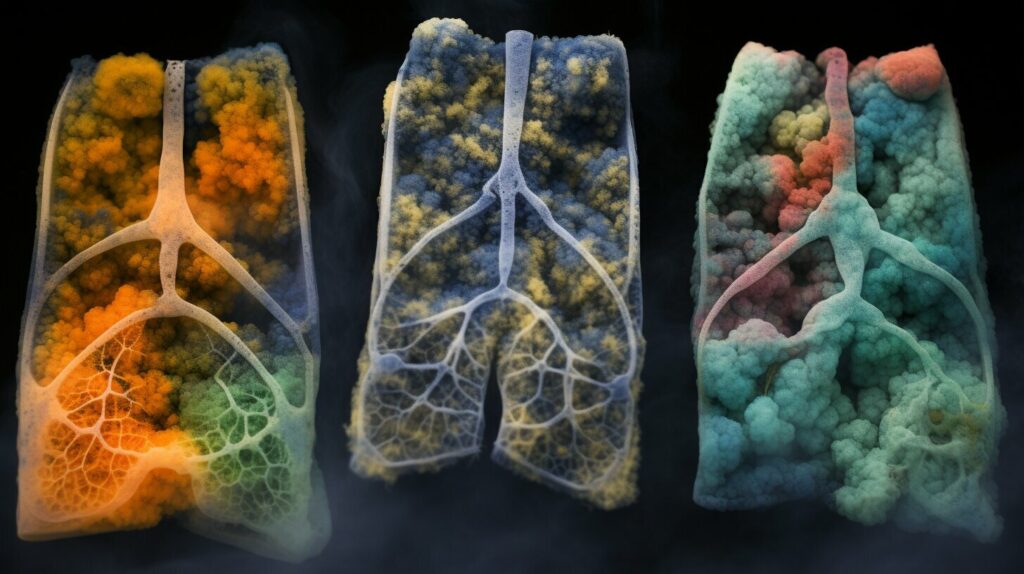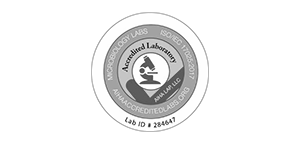
How Long Does it Take to Get Sick From Mold Exposure?
If you’ve been exposed to mold, you may be wondering how long it takes to get sick. The answer to this question can vary depending on several factors, including the type and amount of mold you were exposed to, your overall health, and the duration of your exposure.
Some people may experience symptoms within hours or days of exposure to mold, while others may not experience any symptoms for weeks or even months. In some cases, symptoms may be mild or go unnoticed, while in other cases, they may be severe and require medical attention.
Key Takeaways:
- The timeline for mold-related illness can vary depending on multiple factors
- Some people may experience symptoms within hours or days, while others may not experience symptoms for weeks or months
- It’s important to recognize the signs of mold-related illness and seek medical attention if necessary
Understanding Mold Exposure and Health Effects
Mold exposure can have a range of health effects on individuals, depending on the type and duration of exposure, as well as individual susceptibility and pre-existing health conditions. While some people may experience no symptoms at all, others may develop serious health issues.
One of the most common health effects of mold exposure is respiratory problems, such as coughing, wheezing, and shortness of breath. These symptoms can be particularly concerning for individuals with pre-existing conditions like asthma.
Other symptoms of mold exposure may include allergic reactions, such as sneezing, runny nose, and itchy eyes, as well as skin irritation, fatigue, headaches, and cognitive difficulties.
It’s also important to note that some types of mold, such as black mold, can release mycotoxins that can cause more severe health effects, including neurological problems and even death in extreme cases.
If you suspect mold exposure, it’s important to seek medical attention and monitor your symptoms. Even if you don’t experience immediate symptoms, ongoing exposure can have cumulative health effects over time.
Factors Affecting Mold-Related Illness Onset
When it comes to mold exposure, the timeline for illness onset can vary widely. The duration of exposure, individual susceptibility, and pre-existing health conditions can all impact how quickly symptoms develop. Here are some of the key factors to consider:
Exposure duration: The longer you are exposed to mold, the more likely you are to experience symptoms. Short-term exposure may result in mild symptoms that go away quickly, while long-term exposure can lead to more severe and long-lasting health issues.
Susceptibility: Some people are more susceptible to mold-related illness than others. Individuals with weakened immune systems, pre-existing respiratory conditions, or allergies are at a higher risk of developing symptoms. Children, older adults, and pregnant women are also more vulnerable.
Pre-existing health conditions: If you have pre-existing health conditions, such as asthma or allergies, exposure to mold can exacerbate your symptoms. In severe cases, it can lead to a worsening of the underlying condition and require medical intervention.
It’s important to note that every individual is unique, and the timeline for mold-related illness onset can vary widely. Some people may develop symptoms within hours of exposure, while others may not experience any symptoms for weeks or even months. It’s crucial to be aware of the potential risks of mold exposure and take steps to protect your health.
Symptoms of Mold Illness
Mold-related illnesses can cause a variety of symptoms in different individuals. Here are some common symptoms that may indicate mold exposure:
- Respiratory issues: coughing, wheezing, shortness of breath, chest tightness, and asthma attacks.
- Allergies: stuffy or runny nose, itchy or watery eyes, and skin rashes or hives.
- Headaches: frequent or persistent headaches, migraines, and sinus pressure.
- Fatigue: feeling tired or lethargic, even if you’ve had enough sleep.
- Brain fog: difficulty concentrating, memory problems, and confusion.
- Gastrointestinal issues: nausea, vomiting, diarrhea, and abdominal pain.
- Muscle and joint pain: muscle spasms, cramps, and joint stiffness.
If you experience any of these symptoms and suspect mold exposure, it’s important to seek medical attention. While some symptoms may be mild and resolve on their own, others may indicate a more serious mold-related illness that requires treatment.
Seeking Medical Help and Treatment Options
If you suspect that you have been exposed to mold and are experiencing symptoms, it is important to seek medical help as soon as possible. Your doctor will be able to evaluate your symptoms and determine if they are related to mold exposure or another underlying condition.
The duration of mold-related symptoms can vary depending on the individual and the severity of the exposure. Some people may experience immediate symptoms, while others may not see any effects for several weeks or months.
There is no specific treatment for mold-related illness, but your doctor may recommend medications to manage your symptoms. In severe cases, hospitalization may be necessary.
It is important to address any mold issues in your home or workplace to prevent further exposure. Your doctor may recommend that you take steps to avoid mold in your environment, such as using air purifiers or wearing protective gear when cleaning or working in areas with mold.
If you suspect that you have been exposed to mold, do not delay seeking medical help. Early detection and treatment can help prevent long-term health effects and ensure a speedy recovery.
Prevention and Protection Measures
Protecting your health from mold exposure should be a top priority. Here are some practical measures to prevent mold exposure:
- Control moisture: Mold thrives in damp environments. Keep your home dry by fixing leaks, using dehumidifiers, and ensuring proper ventilation.
- Clean regularly: Regular cleaning and maintenance helps prevent the buildup of mold and other harmful particles.
- Use mold-resistant products: Opt for mold-resistant building materials and cleaning products to reduce the risk of mold growth.
- Check humidity levels: Keep humidity levels in check, ideally below 50%, to prevent mold growth.
If you suspect mold growth in your home, seek professional remediation services immediately. This will help prevent the spread of mold, protect your health, and safeguard your property.
Conclusion
Now that you have a better understanding of mold-related illness, it’s important to remember that prevention and protection are key. By taking proactive steps to control moisture levels, improve ventilation, and maintain cleanliness in your home or workplace, you can protect yourself from potential exposure to mold.
If you suspect that you have been exposed to mold, it’s crucial to seek medical attention from a healthcare professional. Mold-related illness can have serious health implications, and early diagnosis and treatment are essential for a full recovery. Remember to be vigilant about recognizing the signs of mold-related illness and take action as soon as possible.
By educating yourself about mold exposure and taking proactive measures to protect your health, you can reduce your risk of mold-related illness and enjoy a healthier, safer living environment. Don’t hesitate to reach out to a professional mold remediation service if you suspect that you have a mold problem in your home or workplace.
FAQ
Q: How long does it take to get sick from mold exposure?
A: The timeline for getting sick from mold exposure can vary depending on several factors. While some individuals may experience symptoms soon after exposure, others may not show any signs of illness until weeks or even months later. The onset of mold-related illness is influenced by factors such as individual susceptibility, duration of exposure, and pre-existing health conditions.
Q: What are the health effects of mold exposure?
A: Mold exposure can lead to various health effects, including respiratory issues such as coughing, wheezing, and shortness of breath. It can also cause allergies, such as sneezing, itching, and runny nose. Other symptoms may include fatigue, skin problems, and cognitive difficulties. It is important to recognize these signs and seek medical attention if you suspect mold-related illness.
Q: What factors affect the onset of mold-related illness?
A: The time frame for mold sickness can be influenced by factors such as individual susceptibility, exposure duration, and pre-existing health conditions. Some individuals may be more sensitive to mold and experience symptoms sooner, while others may have a delayed response. It is important to note that symptoms and timelines can vary for different individuals.
Q: What are the symptoms of mold illness?
A: Common symptoms of mold-related illness include respiratory issues, such as coughing, wheezing, and difficulty breathing. Skin problems, fatigue, and cognitive difficulties are also frequently reported. If you are experiencing any of these symptoms and suspect mold exposure, it is important to consult a healthcare professional for proper diagnosis and treatment.
Q: When should I seek medical help for mold-related illness?
A: If you suspect mold-related illness, it is recommended to seek medical help as soon as possible. Healthcare professionals can confirm the diagnosis and provide appropriate treatment options. Additionally, if symptoms persist or worsen over time, it is important to consult a healthcare professional for further evaluation. Remember that timely medical assistance is crucial in addressing mold-related health issues.
Q: How can I prevent mold exposure and protect my health?
A: To prevent mold exposure, it is important to maintain proper ventilation and humidity control in your living environment. Regularly cleaning and drying areas prone to moisture can also help. If you suspect mold growth, professional mold remediation may be necessary. Taking proactive steps to prevent mold exposure is essential for safeguarding your health.
Q: Conclusion
A: In conclusion, the timeline for getting sick from mold exposure can vary, and the onset of symptoms depends on individual factors and conditions. Recognizing the signs of mold-related illness and seeking medical help are crucial for proper diagnosis and treatment. By taking preventive measures and protecting yourself from mold exposure, you can ensure better health and well-being.







